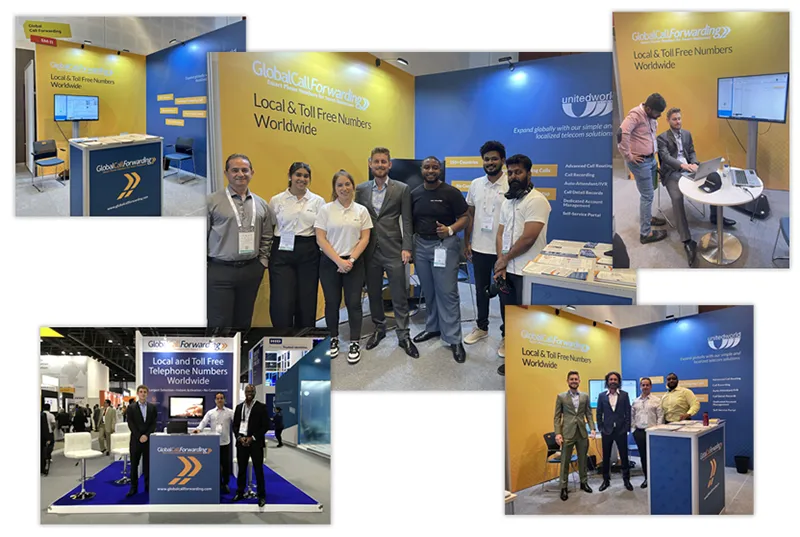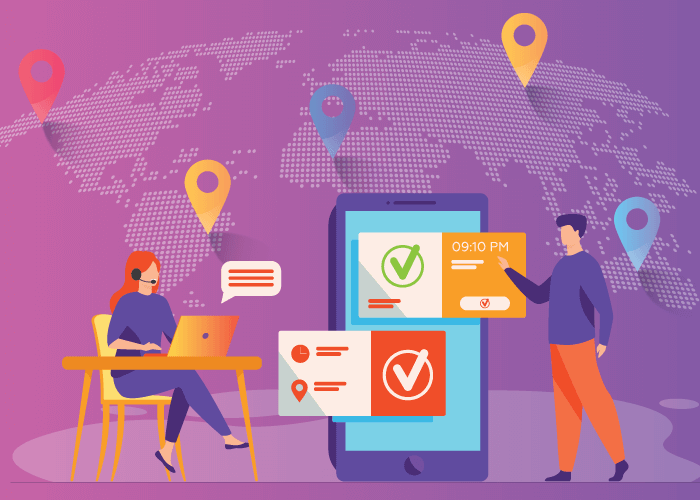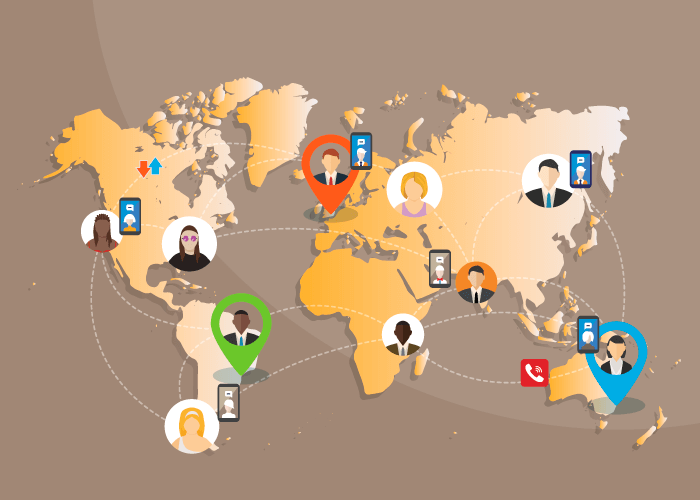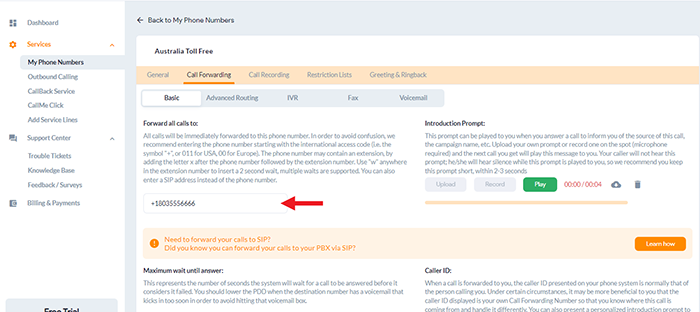The way a business communicates — internally or externally — is key to its success. Through communication, you can determine the strengths and weaknesses in your business and its products. You can also work with the necessary parties to improve quality and serve your valued customers better. In this post, we will discuss what business communication entails and how to better enhance it to align with your business’s goals.
Business Communication: Definition
What is business communication? Business communication refers to sharing information internally (within the office and its teams) and externally (between the business and its customers).
Effective communication in a business should be goal-oriented. That is, everyone in the company interacts and works towards a common goal. And this goal should revolve around creating better experiences for customers, thereby improving customer satisfaction and sales.
And so, communication within teams and departments or between management and its employees will generally include:
- Making plans and setting goals
- Presenting new business, marketing, and sales ideas
- Making decisions
- Compromising, as needed
- Meetings with agendas and goals in place, and so on
Good and reliable communication systems can help increase a business’s productivity and organization. Unclear or miscommunication can lead to the core systems failing. Therefore, it is extremely crucial to pay attention to both internal and external business communication.
Different Types of Business Communication
A business communicates in two general ways: internal and external communication.
Internal communication
This type of communication is focused internally within business teams or departments. Internal business communication consists of different types of communication:
- Upward communication — going up the organizational hierarchy such as from a subordinate to a manager.
- Downward communication — going down the organizational hierarchy such as from a manager or supervisor to a subordinate.
- Lateral communication — also known as technical communication refers to cross-departmental interaction between team members or coworkers.
External communication
This type of communication relates to any interaction or communication leaving the office or coming from outside the office. External business communication deals with interacting with customers, business contacts, vendors, etc. Examples:
- Sales and telesales
- Conducting market research
- Obtaining customer feedback
- Managing leads and prospects
- Account management, and so on
Communication Methods: Ways to Communicate for Business
Like any other type of communication, businesses interact internally and externally either verbally or in writing. And so business communication takes place in person or face-to-face, through phone conversations, video conferencing, chat, SMS exchanges, etc. Or through email exchanges after collecting email contacts through website pop-up forms, lead magnets, LinkedIn email finder, high-converting landing pages, etc. In broader terms, businesses generally communicate in-person, virtually, or remotely.
Choosing what method of communication is best for your company depends on a few factors. For instance, written communication is good for documentation of ideas and actions while verbal allows for instantaneous and collaborative idea formation. Additionally, your communication methods would depend on where your business is located, its hours, how many people are involved, whether you have offices in different time zones (remote offices), and so on. Also, a well-structured process flow diagram enhances communication by visually depicting complex processes, ensuring shared understanding among team members.
So what are some different methods that can be used for effective communication?
1. Written communication — This consists of emails and mail primarily and can also include chat and instant messaging portals. Examples: Gmail, Outlook, Slack, Teamwork, Google Hangouts, etc.)
2. Phone conversations — This consists of communicating via telephones, smartphones, or a cloud phone system where two or more people are actively involved and participating in the conversation.
3. Video conferencing — This takes phone conversations to a visual level where remote teams can work more in sync through video, mimicking in-person meetings.
4. In-person meetings — In-person meetings are every business’s most preferred communication method as they promote clear interaction and decisions more quickly.
5. Web-based communication — This includes virtual communication over web applications or a cloud phone system: email, live chat, virtual phone numbers, messaging apps, video-chat apps, and so on.
6. Official documents — This refers to any essential documentation such as agreements, terms and conditions, medical records, and so on. Such documents reduce confusion, protect against liability and fraud, and provide clarity.
7. Presentations — Presentations through PowerPoint slides or using other tools can come in very handy when presenting ideas, strategies, and even training to a large group.
8. FAQs and content — This type of communication is externally-focused. Having a well-designed website includes providing informational and educational content and FAQs so web-visitors can find what they are looking for and witness your company’s expertise.
9. Surveys and feedback — This refers to internal surveys studying how teams are working and customer surveys to determine how customers can be served better. The ultimate goal is to identify areas of weaknesses and convert them into strengths as well as opening up a communication channel between all levels of the office hierarchy.
10. Customer-related — Covers customer interaction, support, CRM systems, reviews, etc.
Related: 7 Must-Have Global Expansion Tools for Communication
6 Reasons Why Effective Communication is Important
So, why should your business enforce better internal and external communication? Creating an environment for constructive and effective communication lets your business:
1. Align all teams and goals
By communicating consistently with your teams, your business can ensure that everyone is on the same page regarding short-term and long-term goals. Proper business communication encourages teams to collaborate, share ideas and suggestions, and collect feedback. Use a vision statement to articulate your organization’s aspirations, guiding everyone’s efforts toward a common business goals. All of this can help the business create a better work environment as well as develop efficient products and services for customers.
2. Improve employee engagement & productivity
Internal communication can enhance employee experience by providing coaching, training, and support. Through this, employees are equipped to improve productivity and stay on top of their work.
3. Encourage inter-departmental communication & collaboration
Sharing ideas and feedback can go a long way in building better experiences and products not only for customers but employees as well. Enabling your teams to work together through collaboration can help your business develop well-rounded products and market them in a way that means something to your customers.
4. Keep in-house and remote teams connected
Business communication is essential to keep all teams connected, whether in-house or remote. Make it easier for employees to connect with each other so that they can work together towards your business’ goals and milestones.
5. Support knowledge-sharing
By establishing an easy-to-use and efficient business communication system, your teams can follow knowledge-sharing best practices. This way, employees can share essential information and knowledge about the industry, field, and products and services. Without such a system, organizational knowledge will suffer.
6. Improve employee and customer satisfaction & retention
Lastly, all of the above reasons lead to the most important impact of business communication: satisfaction and retention. Happy employees make happy customers. And so, your business’ goal should be to retain employees and customers by improving their satisfaction and experience.
How to Communicate Effectively in the Workspace: 8 Useful Tips
Effective business communication best practices have been talked about for years as we continue to find better ways to express ourselves and collaborate with others. Here are some key points to keep in mind so that you communicate well in your place of work:
1. Adopt active listening
Many times, we assume we know what the problem is and what solutions work best. But our experiences differ, and so it is always a good idea to actively listen to what your colleague, supervisor, or customer is telling you. Actively listening to and acknowledging the other person shows them that you actually care about their concern. Treat their issue or concern as new and personal to them. This will help you offer solutions that will work for them instead of general, unattached help.
2. Be empathetic
Empathy is growing more and more important in customer service. However, that is not where it should start and end—practice empathy in all business- and non-business-related communication. Being empathetic and actually trying to understand where the other person is coming from will help you offer better and more tailored responses. And it will create better customer service experiences through genuine interactions and care.
3. Eliminate assumptions and biases
Biases are still very much present in communication. However, people are more aware and have been consciously trying to eliminate their own assumptions and biases when communicating with others. Avoid assumptions by communicating openly and honestly about needs and expectations. And reduce implicit bias in communication by being aware and respectful of the other person. This includes respecting the other persons’ identity — their gender and gender pronouns, race, culture, religion, disabilities,
4. Ask questions
When in doubt, ask questions and be open to receiving help. Asking questions can help clarify confusion, get assistance, and receive feedback. You also show the other person that you are paying attention and listening to what they’re saying. Make sure you ask relevant questions instead of asking about something they’ve already talked about.
5. Be respectful and patient
Working can be tough, especially during high-traffic periods and high-stress situations. Be patient and respectful during these moments. It is easy to get carried away and demand more than a person can accomplish. Communicate effectively to set realistic expectations, clarify confusion, and avoid misunderstandings.
6. Acknowledge and reinforce positive behaviors
Part of good effective business communication is highlighting good and positive behaviors and accomplishments. This helps your employees and colleagues feel validated, heard, and seen. And it will, in turn, reinforce desirable behaviors.
7. Validate feelings and ideas
Finally, validate and acknowledge feelings, ideas, and suggestions when shared. Dismissing how your colleagues feel or ignoring ideas they have for improvements can lead to distrust and indifference towards the company. This will further reduce the amount of investment the employee or customer has in your company leading to high employee turnover and losing valuable customers.
8. Be aware of international phone etiquette
When communicating with business contacts and customers in other countries and regions, it is a good practice to be aware of international phone etiquette. Practicing good phone etiquette demonstrates that you respect their culture by making an attempt to connect with them in ways that matter to them.
Setting Up Business Communications
It is important to find the right business communication system for your company. Ideally, you want systems that you need and will use effectively. When setting up your communication system, keep these steps in mind:
1) Review your current business communication set-up and identify new goals.
Before reinventing your communication system, review the current one to understand its strengths and weaknesses. This will help you determine what to look for in the new system. Consider some common reasons why communication systems need replacement:
- Low employee satisfaction
- Low customer satisfaction or weak caller experience
- Information being lost due to remote work or improper documentation
Then consider what your company’s goals are:
- Low employee turnover rate
- High customer satisfaction rate
- Proper tracking of projects, documents, interactions, tasks, etc.
2) Consider how you want your core groups to communicate with each other.
Next, develop a structure for how your teams will communicate:
- Horizontally (departments)
- Vertically (between teams and managers)
- Externally (between the company and customers, suppliers, partners).
In order to create this structure, consider:
- Which teams need to talk daily.
- Which teams need specific methods of communication. For example, do all teams need access to phones or direct lines? Or, do all teams need a project management system that documents tasks and projects?
- How can managers maintain and report progress in a department? What tools might they need?
- Can a forum or knowledge base be created to reduce meetings/interactions regarding basic elements?
3) Choose methods of communication suitable for your needs.
Based on the above analysis, pick from the communication methods discussed above that would fit well with your core groups. Then consider which methods are absolutely needed and which can be optional.
4) Invest in the right communication tools.
Some businesses start off using the most commonly-used tools such as Gmail, Outlook, Google Drive, Microsoft Office, Slack, Google Hangouts, etc. However, what tools are best suited for your company depends on what you want to achieve through them. Here are some tips to keep in mind:
- If you run a small business, use a single tool for email, internal chat, and calendars that can be shared, etc. Using multiple platforms can lead to confusion and slow down important processes.
- For external business communication, create guidelines regarding your brand. For example, editorial notes, tone of voice, etc., and make sure that everyone communicating externally is made aware of your brand’s voice.
- Consider an easy-to-use and reliable VoIP phone system to keep remote teams well-connected.
- You may even consider investing in virtual phone numbers that help you communicate easily with international customers.
- Use cloud storage to secure and keep track of important documents. If you use your phone’s storage, make sure to clear it up regularly to free up space and maintain optimal performance.
- You may even consider using a project management system such as Teamwork or Monday to keep track of projects and tasks as they move within different teams and departments.
How Global Call Forwarding Can Help
We can provide you with essential communication tools to boost internal and external communications. From VoIP to a variety of virtual phone numbers and communication features, we can help you build and set up a high-functioning office phone system that keeps you connected no matter where you or your teams are located. For more information, speak to an expert at 1 (888) 908 6171.















